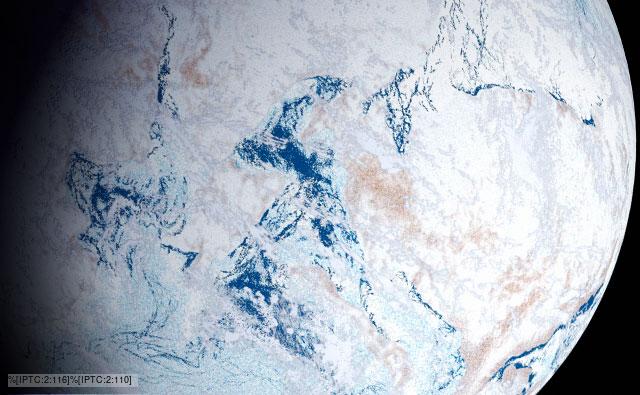Climate Change - The Greenhouse Effect
What do scientists mean by the "Greenhouse Effect"?
When the Sun's energy arrives at the Earth, it travels through the air.
When the Sun's energy arrives at the Earth, it travels through the air.
Some is reflected back to space, but some hits the Earth and warms it.
The warm Earth gives off infrared radiation with various wavelengths.

Some of those waves can pass back out of the air to space, but some are absorbed by certain gases in the air.
If there are more of those gases, less heat escapes into space.

Concentrated 'greenhouse gases' on Venus have caused the surface temperature to rise to 735 Kelvin (462 degrees C; around 900 degrees F)

Carbon dioxide levels in the atmosphere have risen quickly since people began burning large quantities of fossil fuels.

Carbon dioxide levels in the atmosphere have risen quickly since people began burning large quantities of fossil fuels.
There was carbon dioxide in the air before that, at around 270 parts per million.
Without any carbon dioxide, the Earth would be very cold.
Without any carbon dioxide, the Earth would be very cold.
The temperature would be around -18 degrees C.
There have been times when most of the carbon dioxide was trapped in rocks.
The Earth cooled into a state called 'Snowball Earth'.

These ancient events are unlikely to be repeated - they occurred when the Sun was producing less energy.